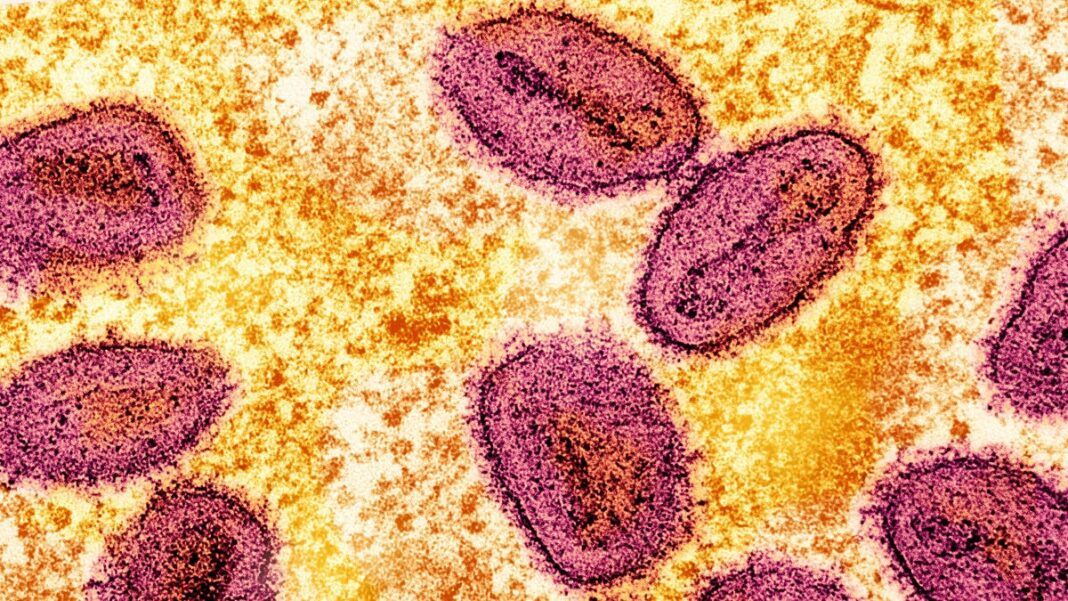First U.S. Case of Mpox Strain Detected, According to Health Officials
On Saturday, health authorities reported the discovery of the first case of an mpox strain in the United States. This strain has raised global health concerns regarding its potential spread, severity, and ease of transmission.
The affected individual had recently traveled to eastern Africa before returning to California, where the mpox strain (clade I mpox) has impacted several nations, according to a news release from the Centers for Disease Control and Prevention. State and federal health officials assessed that the public risk stemming from this case is minimal.
The individual is currently in isolation at home, and there is no indication that the clade I mpox strain is spreading among people in California or anywhere else in the U.S., according to state health officials. Public health workers are reaching out to individuals who had close interactions with the patient.
Historically, clade I has resulted in more severe illnesses compared to clade II. However, health officials in California stated that recent cases suggest the clade I strain may not be as clinically severe as past outbreaks, especially with access to adequate medical care.
According to the World Health Organization, mpox can lead to painful rashes with sores, swollen lymph nodes, fevers, headaches, muscle aches, back pain, and fatigue. Most individuals recover fully within a few weeks.
In severe situations, the infection can lead to serious complications such as bacterial infections from lesions, pneumonia, vision loss, dehydration, and malnutrition due to vomiting or diarrhea. There are also rare cases of infections affecting the blood, brain, heart, or genital organs, with a small number of fatalities.
The first human cases of mpox were recorded in the 1970s in the Democratic Republic of the Congo, according to the National Institutes of Health. The virus has since spread around the world, with the CDC reporting over 100,000 infections from the clade II strain in recent years.
Transmission of Mpox
Mpox primarily spreads from animals to humans, gaining its former name, monkeypox, due to its initial identification in monkeys. It is part of the same virus family as smallpox and spreads via physical contact, according to the CDC.
This new strain of mpox is thought to be transmitted through close, intimate, and sexual contact that involves skin-to-skin interactions, as well as through contact with contaminated items like clothing or bedding. The CDC notes that casual interactions, such as those encountered during flights, are unlikely to result in transmission.
Individuals at a higher risk of contracting mpox include: gay men, bisexual men, men who engage in sexual activities with men, transgender and nonbinary individuals, and others who have been exposed to someone infected. Health authorities recommend that these groups consider getting vaccinated against both strains of mpox.
Case Identification by Officials
The California Department of Public Health confirmed the strain through testing procedures, according to a press statement. The individual received medical care in San Mateo County, near San Francisco, based on their travel history and symptoms. State officials reported the case to the CDC, which will conduct additional lab tests.
Monitoring the Spread of Mpox
The World Health Organization declared a global health emergency for this strain in August, which is distinct from the clade II strain that has been present in the U.S. since 2022. The Africa Centres for Disease Control and Prevention reported more than 51,000 cases and over 1,000 deaths in Africa during the latest outbreak in 2024, primarily in Congo.
In addition to Africa, a few cases have been reported in Europe, India, and Southeast Asia.
Earlier this year, the U.S. government issued travel advisories concerning central and eastern Africa due to the outbreaks.
The incubation period for mpox is typically between 3 and 17 days, during which an infected person may not exhibit symptoms and feel perfectly healthy.
(This article has been updated with additional information.)

